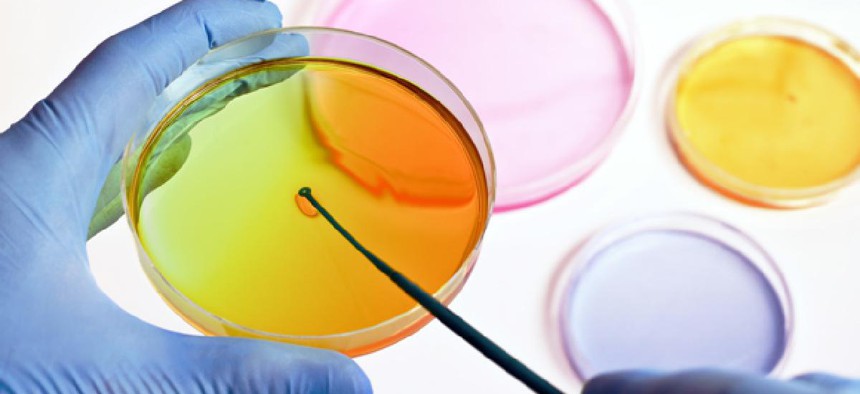Scientists Just Made Bacteria That Love Coffee as Much as You Do

angellodeco/Shutterstock.com
Scientists have created synthetic bacteria that need caffeine to live and reproduce.
Many of us like to think that we “live off” of caffeine, but our caffeine-addicted culture just doesn’t compare to the bacterial cultures growing in Texas laboratories, where scientists from the University of Texas and the University of Iowa have created synthetic bacteria that need caffeine to live and reproduce.
“The major application is that whenever you are processing coffee berries, you are left with a lot of nutrient-rich plant material,” says Jeffrey Barrick, a biochemist at the University of Texas who worked on the experiment. “But because of the plants’ high caffeine levels, they are also really toxic—the bacteria could help turn that plant material into nutritious livestock feed,” which could make a big difference for farmers in developing countries.
Coffee’s energy-boosting properties sometimes come across as miraculous, but caffeine is basically just a bunch of oxygen, nitrogen, carbon and hydrogen atoms. Of these, hydrogen and carbon combine to form three methyl groups, which stick out from caffeine’s central ring structure. The genetically-engineered bacteria target these methyl groups: their enzymes break them down so they can reach the ring and make the DNA bases they need to survive. So, theoretically, you could add the bacteria to a can of Red Bull and watch them grow. In the short time it takes for the enzymes to break down the caffeine to its chemical precursor, xanthin, you could obtain a perfectly decaffeinated energy drink—with lots of bacterial growth for added flavor.
(Image via angellodeco/Shutterstock.com)
NEXT STORY: A possible reprieve on STOCK Act disclosures?





